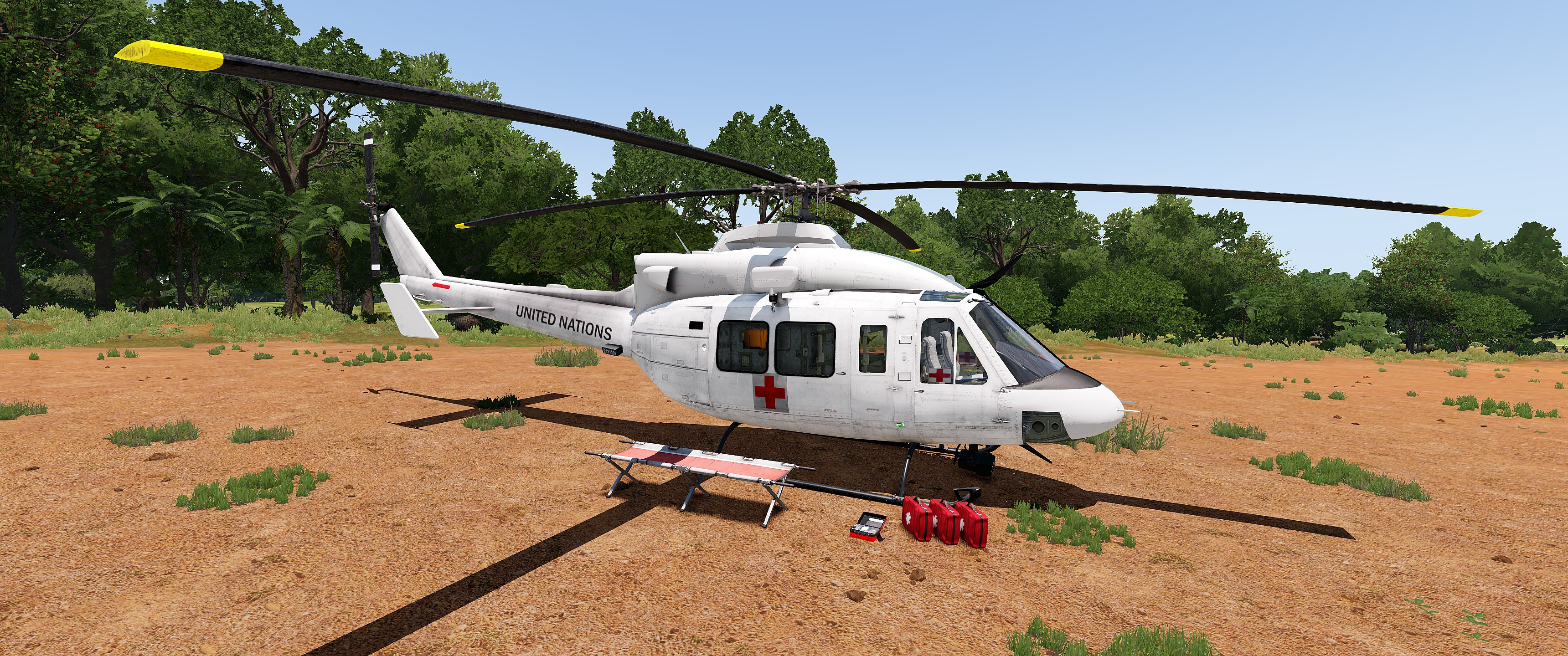UN Deploys Advanced Medevac Helicopters to Central Africa for Rapid Medical Response
In a significant boost to medical services in Central Africa, the United Nations has announced the deployment of 12 state-of-the-art CH-146 Griffin helicopters, specially modified for medical evacuation (medevac) operations. These aircraft are equipped with the latest medical technology, allowing onboard medical professionals to perform advanced procedures while en route to medical facilities. The deployment of these medevac helicopters is part of a broader initiative by the UN to enhance the responsiveness and effectiveness of medical services in areas affected by conflict and remote geography.

British UN forces arrived Central Africa
Bozoum, Central Africa - ANN News Report
Overview of the CH-146 Griffin Medevac Initiative
The CH-146 Griffin helicopters, valued at approximately $120 million, are part of a broader UN initiative to enhance emergency medical response capabilities in remote and conflict-affected regions of Central Africa. Each helicopter is fitted with life-support equipment, surgical units, and telemedicine systems, enabling doctors to provide critical care at thousands of feet above the ground. This significant investment is aimed at transforming the emergency medical response in regions where healthcare facilities are limited or inaccessible due to geographic and infrastructural challenges.
Operational Capabilities and Reach
The medevac helicopters are designed to operate in challenging terrains where traditional ground transportation is impractical or impossible. “In many cases, it’s a race against time to save lives in this rugged environment, and these helicopters are literal lifesavers,” stated Dr. Emily Jordan, a UN health advisor. The helicopters’ ability to navigate difficult landscapes rapidly decreases the time it takes to transport critically injured patients to facilities where they can receive the appropriate medical care, potentially saving more lives.
Financial and Logistical Details
The UN’s investment extends beyond the helicopters. An additional $75 million has been allocated for purchasing medical supplies and equipment for 8 hospitals and 32 field stations across the region. This comprehensive healthcare package aims to dramatically improve the survival rates of both wounded soldiers and civilians. The funding will ensure that these facilities are well-equipped to handle a variety of medical situations, enhancing the overall healthcare delivery in the region.
Impact on Local Healthcare
Local healthcare facilities, often overwhelmed by the lack of resources, will benefit immensely from the enhanced capacity to perform surgeries and complex medical procedures onsite. “This initiative not only speeds up the process of medical evacuation but also boosts the overall healthcare infrastructure,” Dr. Jordan added. By providing the tools and technology necessary for high-level medical care, the UN is helping to elevate the standard of healthcare available to the local population, thus improving health outcomes.
Challenges and Future Plans
While the deployment of these medevac helicopters represents a significant advancement, the UN acknowledges ongoing challenges, including the need for continuous training for local medical staff and ensuring the maintenance of the high-tech equipment. The organization is committed to supporting ongoing education and training programs for local health professionals to maximize the benefits of the new equipment and facilities. Additionally, the UN is planning further expansions of this initiative, including increasing the number of medevac helicopters and further investments in local healthcare infrastructure.
Stay tuned to ANN News for more updates on how these new medical resources are transforming emergency care in one of the world’s most challenging environments.